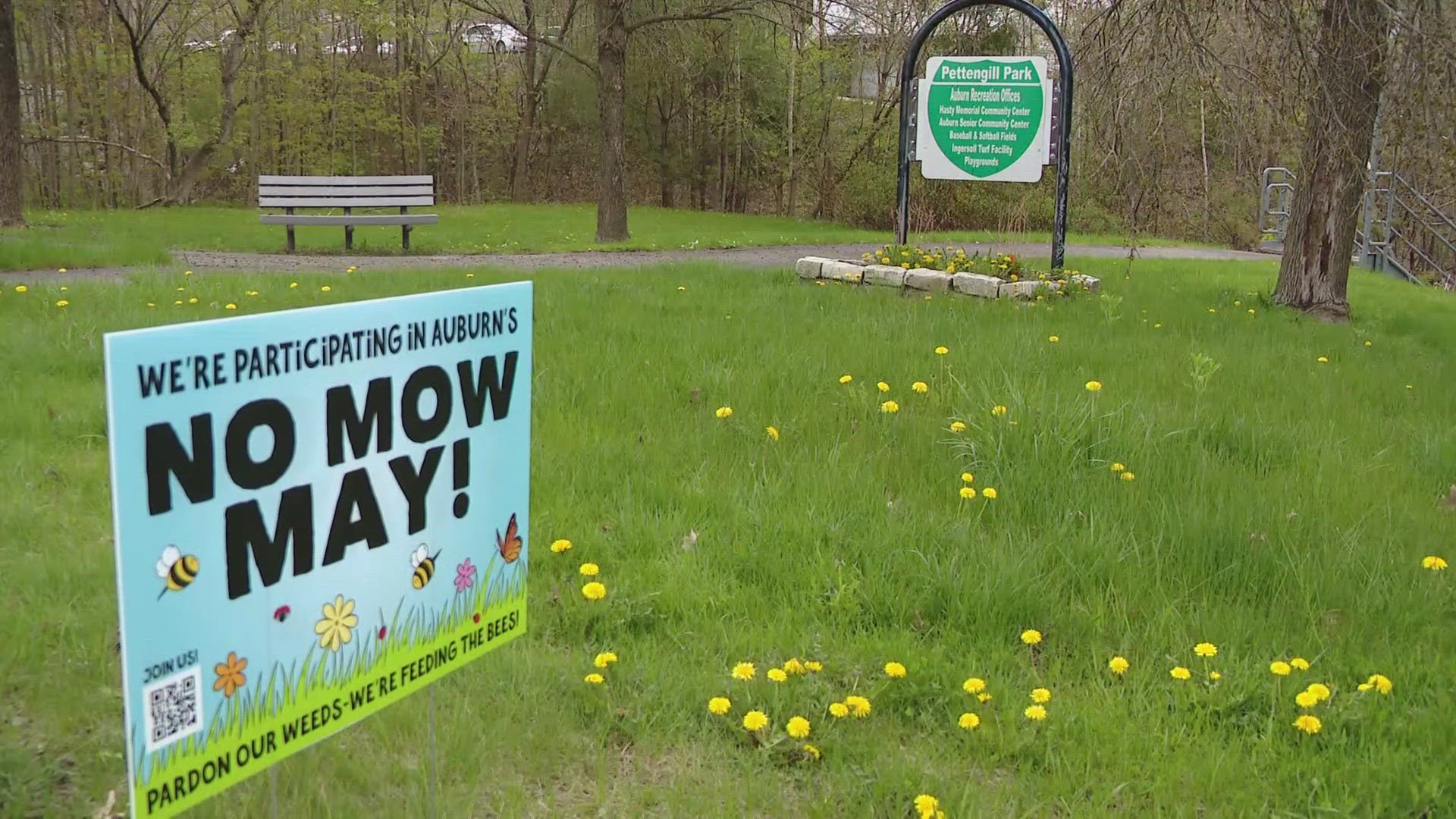AUBURN, Maine — Falmouth, Saco, Rockland, and Auburn are just some of the Maine communities where residents are giving their lawnmowers a break to allow flowers to bloom and provide food for bees and other pollinators.
However, the "No Mow May" campaign is happening just as the season for tick-carrying diseases, including Lyme, is in full swing.
Now, experts are weighing some important advice for homeowners.
In Auburn, the first 100 residents enrolled in the city's "No Mow May" campaign received a free yard sign. The program promotes allowing grass, wildflowers, and other vegetation to grow freely, providing nectar and pollen that help bees thrive.
"It's vitally important to ensure pollinators have food from early spring, summer, and fall," Ryanna Larose of the Auburn Conservation Working Group explained.
Public works crews also keep the blades off of local parks and public spaces to provide a refuge for pollinator species.
"We have a few parks and stuff we have picked and designated where we can leave the grass alone. And in some places, it doesn't grow very fast anyway," Scott Holland, director of Auburn Public Works, said.
But there are concerns about letting your grass grow and providing a habitat for ticks as they ramp up over the next few weeks, possibly putting more homeowners at risk for tick-borne illness.
Chuck Lubelczyk is a vector ecologist at the Maine Health Institute for Research. He studies different species of ticks and the diseases they carry, and he leads researchers in tracking ticks throughout Maine.
The whole idea of a 'No Mow May' should not affect ticks a lot," Lubelczyk stated matter-of-factly.
He said if your lawn doesn't have trees or shrubs, deer ticks aren't going to thrive in a couple of inches of grass.
"It's too exposed, too windy, and too sunny for them, and they are going to be in forested areas primarily," Lubelczyk explained.
He said taller grass could lead to more dog ticks, which are becoming more active. While a nuisance, especially for your pets, they have not been found to transmit diseases in Maine, unlike in other parts of the country.
The U.S. CDC recommends clearing tall grass and brushing around homes, between lawns, and in wooded areas, to restrict ticks. Experts also suggest mowing less frequently in sections of your yard where family and pets spend time, while leaving pollinator-friendly plants untouched.
Most importantly, do a tick-check every time you come in from being outside, whether you mow your lawn or not.
For real-time data on cases of Lyme disease and other tick-borne diseases tracked by the Maine CDC, click here.

